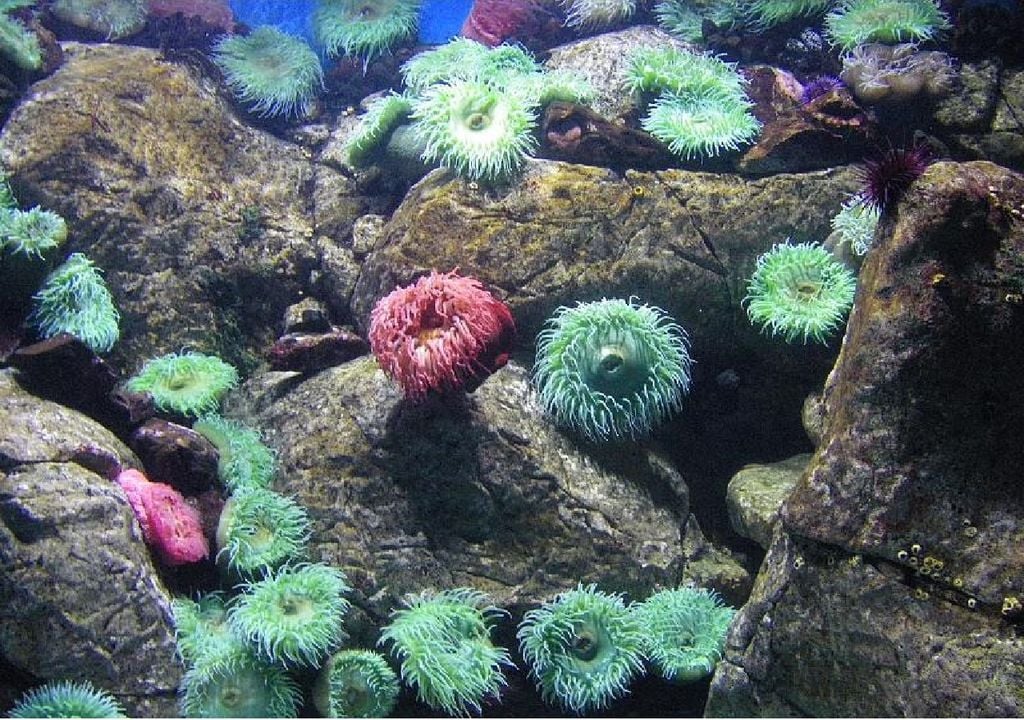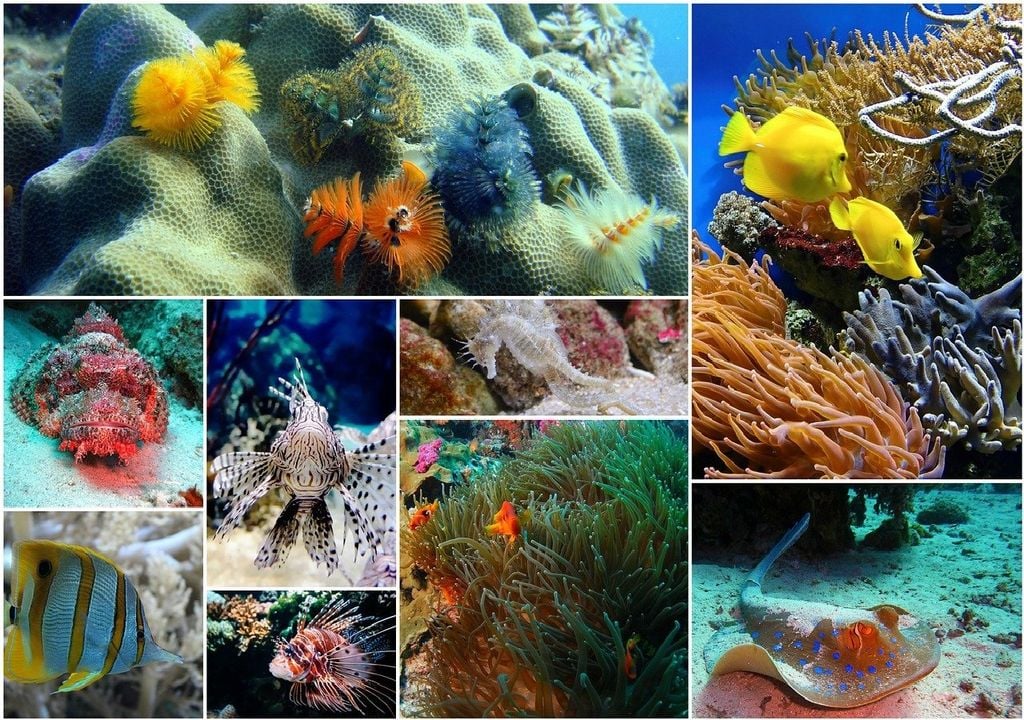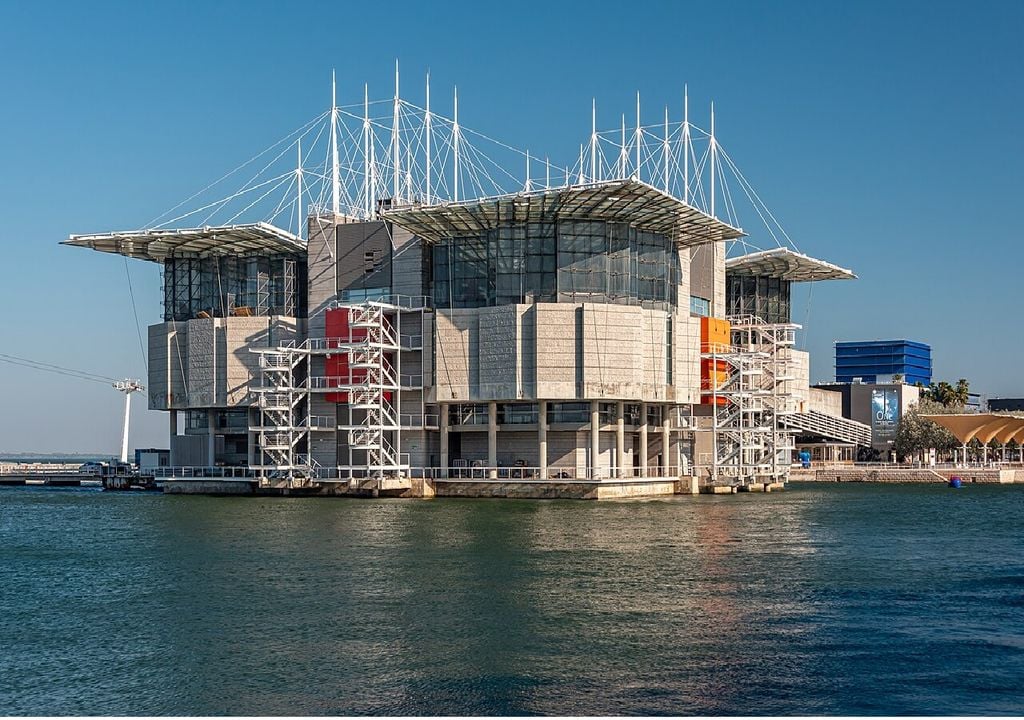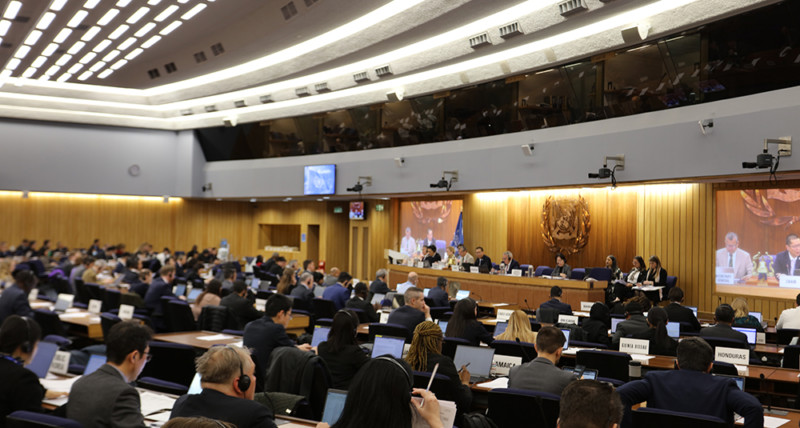Researchers from Técnico are excited about using this new microorganism to colonize reefs threatened by climate change.
The Oceanário de Lisboa houses a wide variety of corals from different marine ecosystems — Atlantic, Indian, Pacific, and Antarctic. Although the exact number is hard to determine, this community represents a rich collection from all parts of the ocean.
It is no coincidence that they are internationally recognized for their beauty and excellent health, providing essential ecosystem services for the more than 8,000 marine organisms that inhabit the 30 aquariums of this oceanarium, opened in 1998 in Parque das Nações.

A controlled environment, sheltered from climate warming, partly explains why these corals are so well preserved. But this is not the only reason. In fact, it’s not even the main reason.
In the calm waters of the Lisbon Oceanarium, Daniela Silva, Matilde Marques, and Joana Couceiro, master’s and doctoral students at Instituto Superior Técnico, discovered Endozoicomonas lisbonensis.
The bacterium, named after the Portuguese capital, is responsible for the good health of the coral community in the oceanarium.
Endozoicomonas are coral symbionts — the two organisms interact in a mutually beneficial way. But E. lisbonensis stands out mainly for its ability to reduce nitrates into nitrites.
This is a crucial talent for the nitrogen cycle, one of the most important for maintaining ocean balance and coral health.
The discovery and identification of this new bacterium could thus represent a significant breakthrough in conserving threatened corals across the world’s oceans.
An Unexpected Boost for the Circular Economy
This microscopic organism is also capable of breaking down complex carbohydrates commonly found in the environment, including cellulose, xylan, and chitin.
The enthusiasm around E. lisbonensis among specialists also stems from its potential to stimulate the bio-circular economy.
Beyond the benefits it brings to corals, these enzymes could prove very useful for recycling waste from the seafood industry.
An Opportunity for Ocean Protection
Chitin is a major nutrient in the diet of corals and could also play a role in defending these communities against fungal pathogens.

The discovery of E. lisbonensis at the Lisbon Oceanarium could therefore represent an opportunity to protect the oceans, but first, the mechanisms and evolutionary factors behind its interactions need to be thoroughly understood.
Challenges Ahead Following the Discovery
Many of the hypotheses proposed by the researchers still need testing. These are microscopic organisms that often go unnoticed and are difficult to manipulate in the laboratory.

Endozoicomonas lisbonensis was actually isolated in 2022, but only after full genome sequencing was it possible to confirm that it was indeed a new species.
Recreating the ideal conditions for its unconstrained growth is the main challenge facing the team at Instituto Superior Técnico. This work is closely followed by researchers Tina Keller-Costa and Rodrigo Costa from the Institute for Bioengineering and Biosciences (iBB), by biology and conservation director Núria Baylina, as well as by supervising aquarist Elsa Santos of the Lisbon Oceanarium.
Source: tameteo




